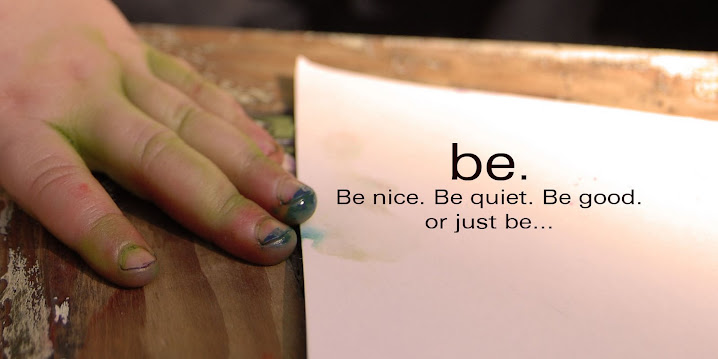The sort of thesis for the weekend, if there was one, was to enable parents to examine the ways they are deeply and strongly rooting their children as well as allowing them to be set free on competent wings. The first evening began the discussion by asking parents what their "chief end" is. The first question in the Heidelberg catechism says that the chief end of man is to "glorify God and enjoy Him forever." I thought about what my chief end is in my real life. I know what it should be, but what is it really? Is it to raise kids that make me look good? Is it to raise kids that are the smartest in their class or the most "free" or the most "talented"? Or is it to glorify myself and they get in the way of that? I find that the biggest conflict is often over me wanting my own time and them wanting more of me not less.
The word that keeps coming to me in these moments is F#*K! I think that is a good indication that my chief end right now is not glorifying or enjoying God. I am struggling with irritation and injustice which on all fronts is simply offensive. If I consider the things that make me irritated they are normal things that every 2 and 4 year old need and want. If I consider the things that make me feel like my situation "isn't fair" I will find myself wishing there was someone around to slap me in the face.
I recently read part of a book (because I rarely finish whole books) called "Loving Frank". It is a novel about a woman who had a long notorious affair with Frank Lloyd Wright. In the beginning of the book you are introduced to her, her devoted but slightly dull husband, and her 3 young children. The affair sounds pretty nice because it is centered around her intellectual pursuits and interest in architectural theory. It sounds nice to get together with someone and have deep intimate talks about something that interests you. (as well as other activities that make it an affair) As the book goes on it becomes evident that Frank is demanding and irresponsible with money, and that Mamah (the woman having the affair) is not actually able to continue the affair with out deep seated conflict in her heart. In the end she and her children are brutally murdered by one of Frank's staff. I never got that far and am glad cause I don't really want to read about that in any great detail. However I really identified with the idea of her wanting more and feeling conflicted by it.
I think what I gathered from the parts of the book that I read is that she tried to do it all and it didn't work. She had a plush life with a house keeper and a nanny and cook and basically was completely able to pursue what she wanted. She could spend time with her kids when she wanted and pass them off when she wanted. She would go to lectures at the university and organize women's suffrage events when she wanted to but it was still not enough. So once she was at the other end of the spectrum having FLW as her lover and partner traveling across Europe with him and having him design buildings for her she was missing her children and normalcy of being home.
Smart people learn from their mistakes. Smarter people learn from other people's mistakes. I want to learn from Mamah's mistake and not have an affair with a famous architect. :) No, but I do think that contentment is something our culture struggles with. I think it is certainly something I struggle a great deal with. You constantly hear stories about how people who have everything lose it all cause they can never be satisfied. We have fickle hearts. I want to look back and say that I treasured the time when my children were little. I want to savor and enjoy all that these ages hold and not push them along to be more independent and less a part of my life. How do you do that in a practical way? How do you do that when you've spent the morning reading and playing at the park and then your child throws a fit cause you want to fold some laundry and have a little quiet to yourself?
We know our children model what they observe. We know that the strongest lessons are from what they see in us day in and day out. I hear irritation in Eli's voice when he gets frustrated and I see it in Jonah too. It is humbling to have this job of parenting and of course I can't take credit for all their "weeds" but I think the first step to developing those deep roots and competent wings is recognizing our own failings and thinking about our reactions to situations. It is how I react that teaches them. Not how I tell them to react in the same situation. It seems cyclical and impossible right now so as my dear friend Cindi says, "Grace over this day". We won't ever get it right, but I guess that isn't what it is about. It is about giving and receiving grace and teaching our children by modeling a life of that ebb and flow.


No comments:
Post a Comment